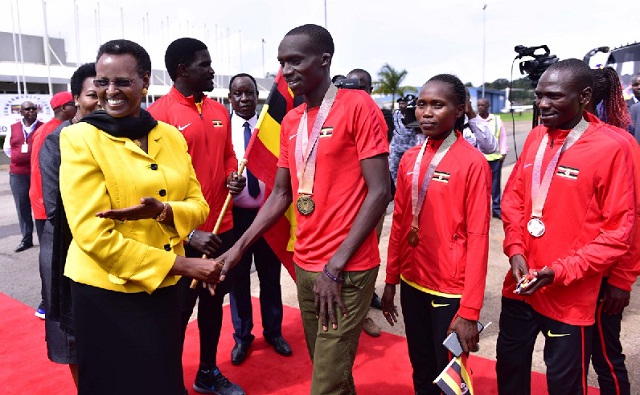
“They now have to prove to the immigration officials their financial capability and prove that they intend to come back home,” he says.
In August, 2015, members of a Ugandan kayak and canoe team were denied the right to participate in the World free style kayaking championships on River Ottawa in Canada.
According to a report by The Ottawa Citizen, Canadian Immigration officials based in Nairobi twice rejected visa applications from the four athletes over concerns they will not return.
Even if the Ugandan kayakers had supporting documents from the host Canadian association, the immigration officials said the reasons given in their visa applications for the proposed visit to Canada were “unclear.”
But Mark Ssali, who is a veteran sports journalist, says the trend is not unique to Uganda and affects many sub-Saharan African countries. At the Gold Coast Games, for example, sportsmen and women and coaches from Rwanda, Sierra Leone, and Cameroon vanished.
Ssali, a former national footballer turned sports commentator, sounds readier to talk about the realities. He says it is all about money and seeking a better life. Although he does not condone the vanishing, he has come to expect it every time a contingent of athletes flies out to participate in these international sports events. He says he even knows sportsmen and women who work hard to qualify because they know it is their best opportunity to get out there.
“Quite often, they have already gotten in touch with people who are already there to receive them,” he says, “People are always looking for greener pastures and these young people think these greener pastures are out there.”
The hassle after vanishing
But Bashaija says although the sportsmen looking for greener pastures often establish contact with some people already living in competition cities before they depart and have some leeway because their visas are normally valid for an extra month or two, they often begin to hassle when the visas expire.
Ssali says, to stop the trend, Uganda needs to find a way to give its sportsmen and women a better life. He says one way would be to develop a systematic route of sending or promoting its athletes into the professional ranks.
“If these young sportsmen and women knew that there was a clear way of making it into the professional ranks after hitting certain heights, those boys and girls would be patient, go to these tournaments and come back, well knowing that their country has a deliberate and systematic programme to help them go professional,” he says.
Kipsiro, Muramagi and others agree that the government needs to improve their welfare if Uganda aims to retain its sportsmen.
Most successful team ever
Uganda’s team at the Gold Coast Games in Australia brought home five medals—three gold and two bronze—one of the best hauls by a Ugandan team.
Joshua Kiprui Cheptegei won two gold medals in the 5,000m and 10,000m.
Stella Chesang bagged the women’s 10,000m gold medal.
Mercyline Chelangat won a bronze in 10,000m.
Boxer Juma Miiro won a bronze medal in the 46-49kg weight category.
 The Independent Uganda: You get the Truth we Pay the Price
The Independent Uganda: You get the Truth we Pay the Price





